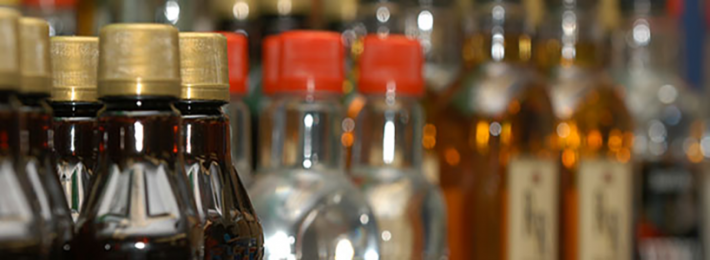Alcohol Consumption and Security Clearances

Alcohol consumption is legal (if you are of age) and it is perfectly acceptable and normal in most social settings, right? So why is it a potential issue for those who want or already have a security clearance? Alcohol affects each individual a bit differently, but when someone drinks excessively the potential for impaired judgment, reduced inhibitions, and aggressive or high risk behavior increases. Statistics have shown alcohol abuse, more often than not, precedes violent or aggressive behavior. The security concern is that in an alcohol-induced state of mind carelessness, impulsiveness, and being more easily manipulated may cause an unauthorized disclosure of classified information. When tied in with foreign intelligence recruitment methods such as using a “honey pot’ or taking photos during involvement in other compromising situations, the abuse of alcohol is a legitimate security concern. As in most adjudicative guidelines, it falls back to one’s trustworthiness, reliability, and good judgment.
Alcohol abuse and alcohol dependence are the two terms most often used by mental health professionals when evaluating someone who has alcohol related issues, incidents, or behavioral problems. Alcohol dependence usually involves regular, daily drinking where it is no longer a choice, but a need. Alcohol abuse may involve only occasional binge drinking, but to the point of physical incapacitation or unconsciousness. In evaluating drinking behavior the amount of daily consumption and amount consumed occasionally at a single sitting are both important. Understanding the “why’ someone drinks is also relevant. Immaturity or succumbing to peer pressure, recent life events or changes, ant-social tendencies, and physical pain relief are also considered when evaluating
Even one DWI/DUI arrest can be an indicator of alcohol abuse, as research has shown that it is highly unlikely the arrest was an isolated lapse in judgment. It is more likely that they have done it numerous times before and have just not been caught. That is not to say that just one alcohol related arrest or incident will prevent you from holding a security clearance. Rather, when put together with other issues such as family problems, job performance, or financial woes, it may be viewed as an indicator for a larger issue. Here are ways to mitigate concerns about alcohol consumption:
- Understand what alcohol abuse and dependence are and assess yourself honestly; if you recognize that you may have a problem then acknowledge it and take proactive measures to change.
- If you can’t do on your own, seek help through counseling or treatment programs; stick with it and don’t quit, follow through to completion; don’t allow relapses and remove yourself from environments where alcohol use is prevalent.
- Abstinence (especially if voluntary) or responsible use and time passed since any alcohol-related incidents are always a big plus in your favor in helping an adjudicator make a decision.
By making positive changes in your lifestyle regarding alcohol consumption you are demonstrating to the adjudicator that you are reliable, trustworthy, have sound judgment, and are able to exercise an appropriate level of discretion, thus overcoming and mitigating the security concern.



Good input. When you have a cleared employee placed into ASAP, or behavioral education classes make it clear they must successfully complete the program or their clearance is at high risk. I am often asked if a DUI will cause revocation. I tell them it “can, based on severity, aggravating circumstances, repeat behavior, etc.” Normally my client allows the court and treatment programs to work through to their conclusion. Getting kicked out of an ASAP class or counseling program, or having bad reports from the car machine…is prima facia evidence against you and indicates no positive progress. If they sign an agreement to remain 100% alcohol free then that is exactly what they must do. Some machines test for metabolites of alcohol being broken down and not just blood alcohol levels as one employee found out the hard way. Successful completion of a treatment program is required to mitigate a medical determination of alcoholism. Even though falling off the wagon is expected for many struggling…it isn’t a good thing for one’s clearance if it happens.
Amberbunny,
That is a great statement to make to employees who have alcohol (or any) issues. As my old friend, Perry Russell-Hunter, Chief of DOHA, says when he is asked whether an incident will affect someone’s eligibility, he responds with “It depends”. The behavior is an issue and “it depends” on how the individual mitigates the problem NOT complying with court-ordered rehabilitation or physician’s recommendations will, in all probability, result in a clearance denial/revocation. Its a character issue - its not always WHAT you do, but HOW you recover or fix from what you have done. Too many Security Managers/FSOs do not understand the adjudicative guidelines or how to shepherd their employees towards a favorable outcome of bad behavior.
Good afternoon,
This is a very informative and intellgient post. And this makes sense why one might be concerned about a DUI or repeat DUIs…however; 9 times out of 10…this logic is absurd.
For example; I had a friend who worked off site for his contractor company but managed several federal contracts. This required him to have access to said database to upload pdfs etc.
I want to be very specfic…Access to said database means to simply read the task order scope of work that the government client wants done. This was a janitorial contract. This means that the “sensitive and secret” information to be read was clean the kitchen, empty the trash, etc.
My friend would then upload his company’s price proposal in response to said task order. The governent would approve it and the work would commence. There is/was nothing secret or public or in any way senstiive at all about this position and the information being read.
And yet…he was deemed a “unacceptable security risk” because he had multiple dui(s) and his badge was revoked, he subsequently lost his job, and now works as a Chipotle Cashier.
How…was this not overkill on the part of the security office?
Ouch. The only reason I can think of why this happened is because dui’s can fall under the 13 adjudicative guidelines and suitability criteria. The latter are used for public trust positions. It does happen but is not common (I think) for SO’s to tack on adj. guidelines not also covered by suitability, onto public trust suitability determinations.
DUIs are no joke, regardless of security risk of position, especially considering the fatal risk to other innocents on the road. Sorry, but I’d terminate anyone with this in a heartbeat.
So what do you all recommend my friend do?
And I won’t go off on a tanget because I do not want to have the topic locked down…I apologize to the moderator who has been most respectful and professional.
What productive steps can my friend do to show that there will never be a fourth dui. He is currently in an alochol program and has the interlock device in his vehicle. All results are positive.
He has informed.me that he has decided to voluntarily upon completion of said interlock device program; leave the device in his car permanently because the temptation to drive home is too great and he never wants to be on the wrong side of the law again.
Time as well would imagine would help? It has already been a year and a half.
Thank you for your input
I can personally attest as someone who has a felony in his past. Mistakes happen. I’ll be the first to admit that. That was my case but I’ve also seen Stresses in life can make us make bad decisions as well.
He might need to wrap his head around what’s causing his desire to drive drunk “to be too great”. There is a level of self control that is imperative to life, not just work.
I think the level of consumption does play a factor. Dwis and duis are different in my opinion.
I have been on the wrong side of judgmental people as well.
A few months ago I was working overnight shifts stocking shelves for 10 bucks an hour.
If he continues to do the right thing I’m sure doors will open up.
I’m almost 35 . have a masters, speak 3 languages, and have tons of experience.
Life happens and showing humbleness is important.
I believe he’s might have learned his lesson over the last year. Just needs to show some persistence and patience.
Good luck to him.
I agree there is serious concern here. I think it would be more beneficial to examine why the person is faulting than just throwing them out.
This isn’t the land of second chances I’ve seen since dealing with my own issue. I’ve always given people the benefit of the doubt, when something has popped up. Unless they show me different.
If we keep throwing people away when things happen. Regardless of if we would expect it to happen to us, the question is should that be the initial response just because it’s the easiest?
Time is a mitigator, so the more time the better… How are the DUIs spread out? We’re they close together or long spans? In reviewing cases it seems like if the DUIs happen as an example in 2012/2016/2017 then the courts would want a track record of 4+ years of sobriety since individual went 4 yrs between DUIs. Alcohol assessment helps, and completing the recommended treatment.
In california there is no such thing as a DWI. That is state specific. As an umbrella statement we follow federal not state laws. I hope we are evaluated as such and I believe that to be the case.